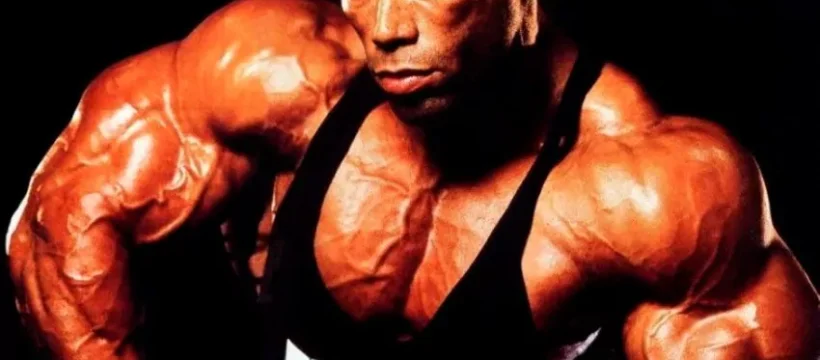Anthropometric Data:
- Height: 176 cm
- Weight: 127 kg (off-season), 112 kg (competition)
- Bicep: 59 cm
- Waist: 80 cm
- Neck: 47 cm
- Thigh: 84 cm
- Calf: 49 cm
- Chest: 145 cm
Biography of Kevin Levrone
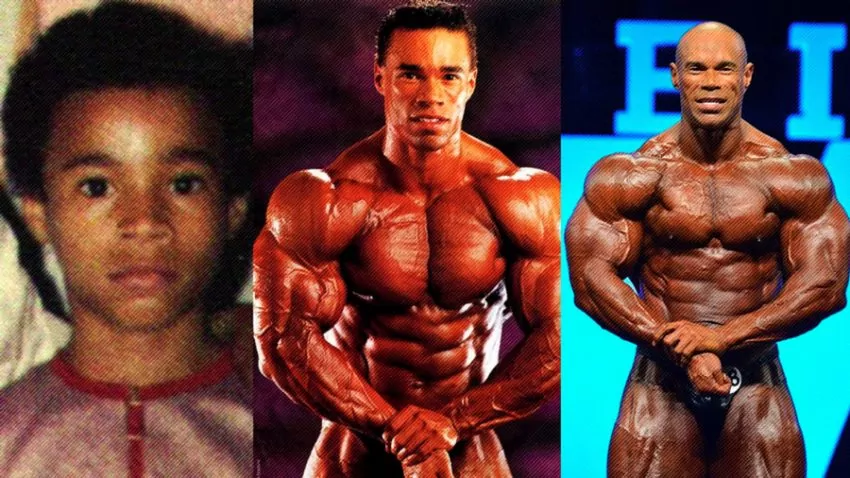
Kevin Levrone was born on July 16, 1965, in Baltimore, Maryland, USA. His childhood was far from easy. Growing up in a large family with five siblings, Kevin faced hardships early on. When he was just ten years old, his father passed away. Kevin found solace in the gym, where he could be alone and process his emotions. According to Kevin, bodybuilding is a sport for loners, a sentiment he expressed many times in interviews. It was in bodybuilding that young Levrone found the solitude he craved, away from the hustle and bustle of his home.
Kevin never initially intended to make bodybuilding his life’s work. After finishing college, he started his own small business. However, life had other plans for the future bodybuilding star. At 24, Kevin’s mother was diagnosed with cancer, prompting him to return to the gym. Devastated and overwhelmed, Kevin threw himself into bodybuilding, working out until he was physically exhausted. When his mother passed away, Kevin was plunged into despair. To distract himself from his grief, he immersed himself entirely in training and preparing for upcoming bodybuilding competitions.
In 1990, Kevin competed in his first bodybuilding contest, where he won, despite being an unknown in the sport at the time. A year later, he claimed first place at the National Championship of the United States and earned his PRO card. By then, the entire bodybuilding community was watching his every move. The following years were filled with numerous competitions, where he faced off against the best in the sport. Kevin twice finished as the runner-up at the “Mr. Olympia,” always just one step away from victory. Many of the contests where Levrone didn’t claim the top spot were contentious.
In 2002, Kevin decided to take a break from his athletic career and delved into his passion for music. He even moved to Los Angeles and announced plans to sell his shares in “World Gym.” Whether Kevin seriously intended to go through with this or if it was a rash decision is known only to him. Soon after, rumors spread that Levrone was preparing for “Mr. Olympia” once again. Within a few months, he withdrew his shares from the market. Not stopping there, Kevin bought the remaining shares of the gym, becoming the sole owner of “World Gym.” Additionally, Kevin made an official statement saying he had no intention of quitting bodybuilding or pursuing a full-time career in music.
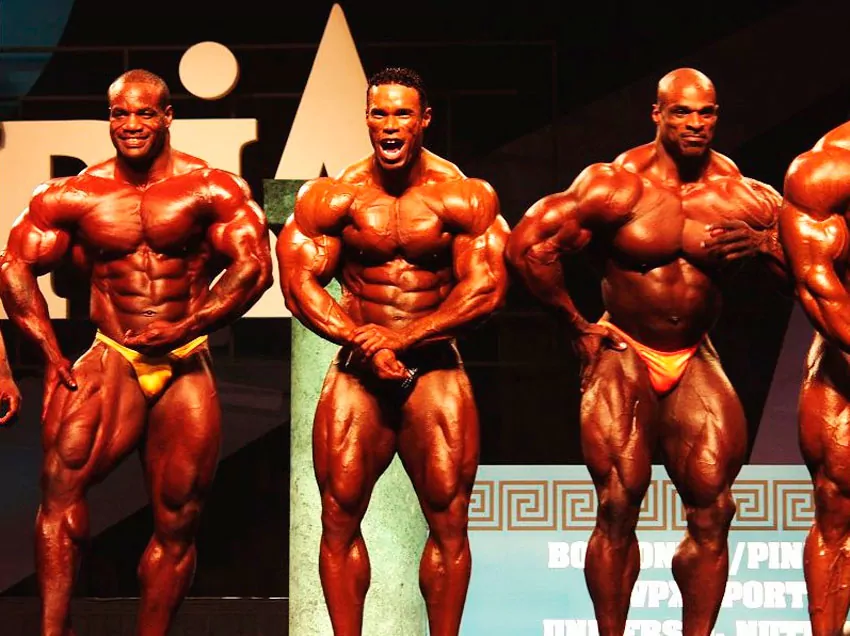
Every bodybuilder’s career is fraught with the risk of injury, and all bodybuilders experience “wounds.” Kevin Levrone was no exception, having faced some rather serious issues during his career. He suffered from a torn pectoral muscle and a hernia, both of which posed significant challenges. One injury was so severe that he lost a large amount of blood, and doctors miraculously managed to save his life. They prohibited him from training or lifting weights for six months. It was truly a miracle that Levrone was able to return to the gym at all. Later, the bodybuilder would recall that those six months were a time of genuine enjoyment for him. It was a period when he didn’t have to worry about planning the next workout, creating a program, weighing in, counting calories, or meticulously managing his diet.
Although the lack of a proper bodybuilding regimen and schedule brought Kevin some pleasure, it negatively impacted his physical form. He lost a significant amount of muscle mass. When Levrone appeared at an official bodybuilding event, he seemed much smaller than before. If it weren’t for his long professional career and numerous victories, one might have said he no longer belonged there. Observing him, many predicted the end of Kevin’s professional career, but they were completely wrong.
After taking a good rest and recovering, Levrone returned to training with even more vigor, strength, and energy. He didn’t slow down and resumed his workouts with his usual intensity. The weights increased, and so did his strength. Kevin achieved the seemingly impossible—he regained his previous form and even added six additional kilograms of muscle. Despite the heavy workloads, which didn’t bring Kevin much joy, he decided to take a break in 2002. A year later, he announced that he had no intention of leaving his professional bodybuilding career for at least three more years, but he didn’t compete again. The only exception was the “Show of Strength Pro” in 2003. From then on, he turned his focus to an acting career.
Kevin Levrone’s Greatest Achievements in His Career
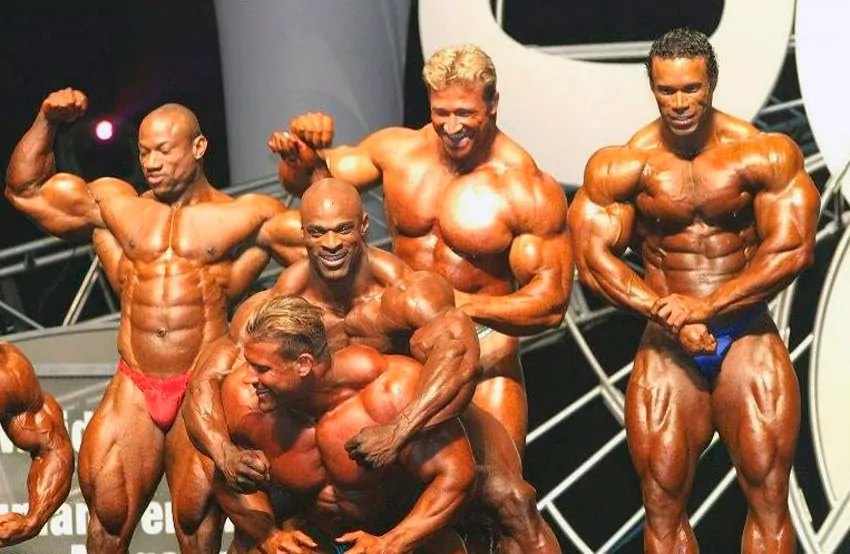
The professional bodybuilding career of Kevin Levrone is one of the most memorable and remarkable, even after his official retirement from the sport. Levrone always knew how to create excitement around himself and maintain the interest of the public and bodybuilding fans. His career took off in 1992 when he achieved a convincing victory at the “Grand Prix Germany.” Although this was a strong start, it did not guarantee him an easy path to winning top places. Subsequent victories came with great effort, but Levrone consistently ranked among the top five. The only exceptions were the 1997 “Arnold Classic,” where he placed 8th, and the 2003 “Mr. Olympia,” where he finished 6th.
Throughout his career, Levrone claimed twenty-two victories in professional competitions and participated in more than 60 tournaments. It was not uncommon for him to compete in up to eight shows in a single year. Maintaining peak physical condition over such a long period is extremely challenging. Levrone always trained with weights that other athletes wouldn’t even touch, even when preparing for competitions. In his final contest, he was unable to secure first place, losing out to Dexter Jackson and Jay Cutler, taking third place. Many of his fans still disagree with this outcome. Unfortunately, many of the competitions where such a massive and aesthetically built athlete did not achieve first place remain subjects of controversy and doubt. The past cannot be changed, and it’s also difficult to regain his former physique due to age. At over fifty years old, competing against younger bodybuilders is a significant challenge.
Kevin Levrone’s Arm Workout
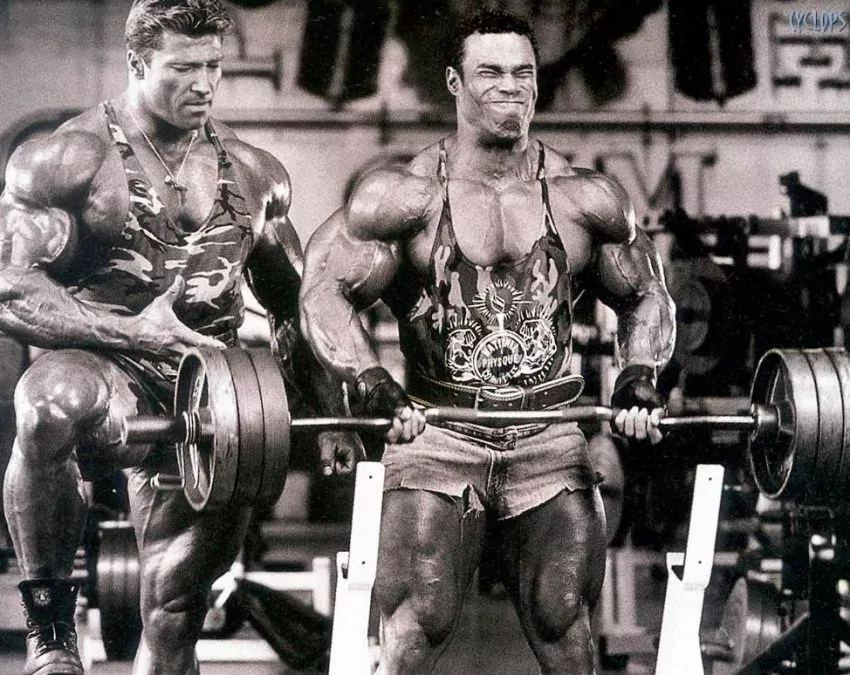
Kevin Levrone always trained in a heavy mode, with repetition ranges always varying between 6 to 8, meaning the weights used were heavy.
- Close-Grip Barbell Bench Press: 4 sets of 6-8 reps
- Lying French Press (Skull Crushers): 4 sets of 6-8 reps
- Tricep Pushdowns on a Cable Machine: 4 sets of 6-8 reps
- Dumbbell Overhead Extension (alternating arms): 4 sets of 6-8 reps
- Standing Barbell Curls: 4 sets of 6-8 reps
- Seated Dumbbell Curls: 4 sets of 6-8 reps
- Cable Curl from Lower Pulley: 4 sets of 6-8 reps
- Concentration Curls with Dumbbells: 4 sets of 6-8 reps
Kevin Levrone’s Shoulder Workout
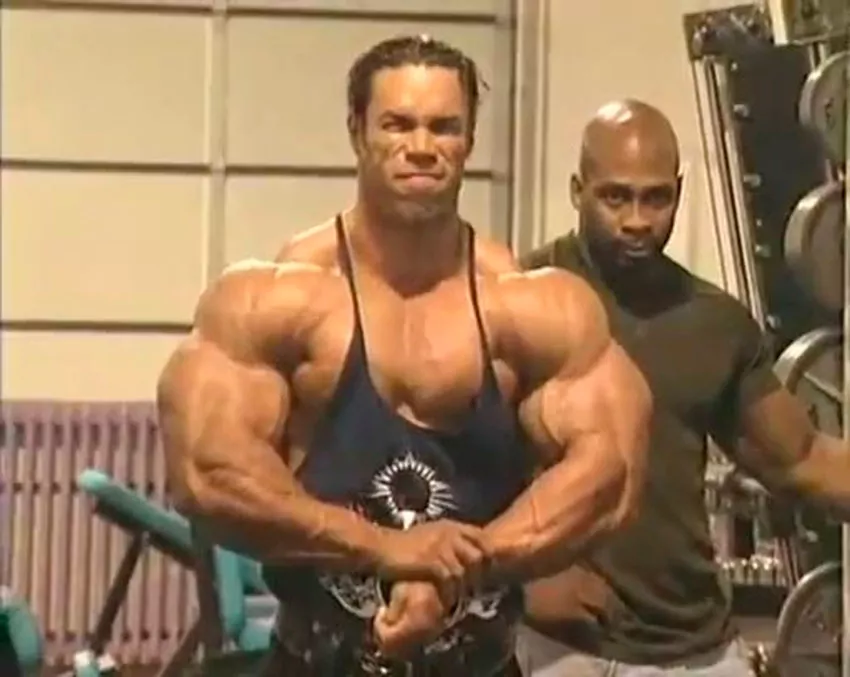
Kevin Levrone always recommended thoroughly warming up the joints before shoulder training, as performing heavy compound exercises with substantial weight can easily injure the shoulder joints. Levrone dedicated at least half an hour to warming up, which included stretching. The foundation of any workout is compound exercises, and the same applies to shoulder training. Exercises should be selected to engage all three heads of the deltoid muscles (anterior, medial, and posterior).
- Behind-the-Neck Barbell Press (Smith Machine): 4 sets of 6-8 reps
- Seated Dumbbell Press: 4 sets of 6-8 reps
- Front Dumbbell Raises: 4 sets of 6-8 reps
- Lateral Dumbbell Raises: 4 sets of 6-8 reps
- Reverse Pec Deck (rear delts): 4 sets of 12-15 reps
- Shrugs with Dumbbells/Barbell: 6-7 sets of 6-8 reps
Using heavy weights and working with low repetitions does not mean you can neglect proper form. It’s crucial to maintain correct execution to avoid severe injuries that could become chronic issues. When performing heavy sets, it’s advisable to use a weightlifting belt for added support.
